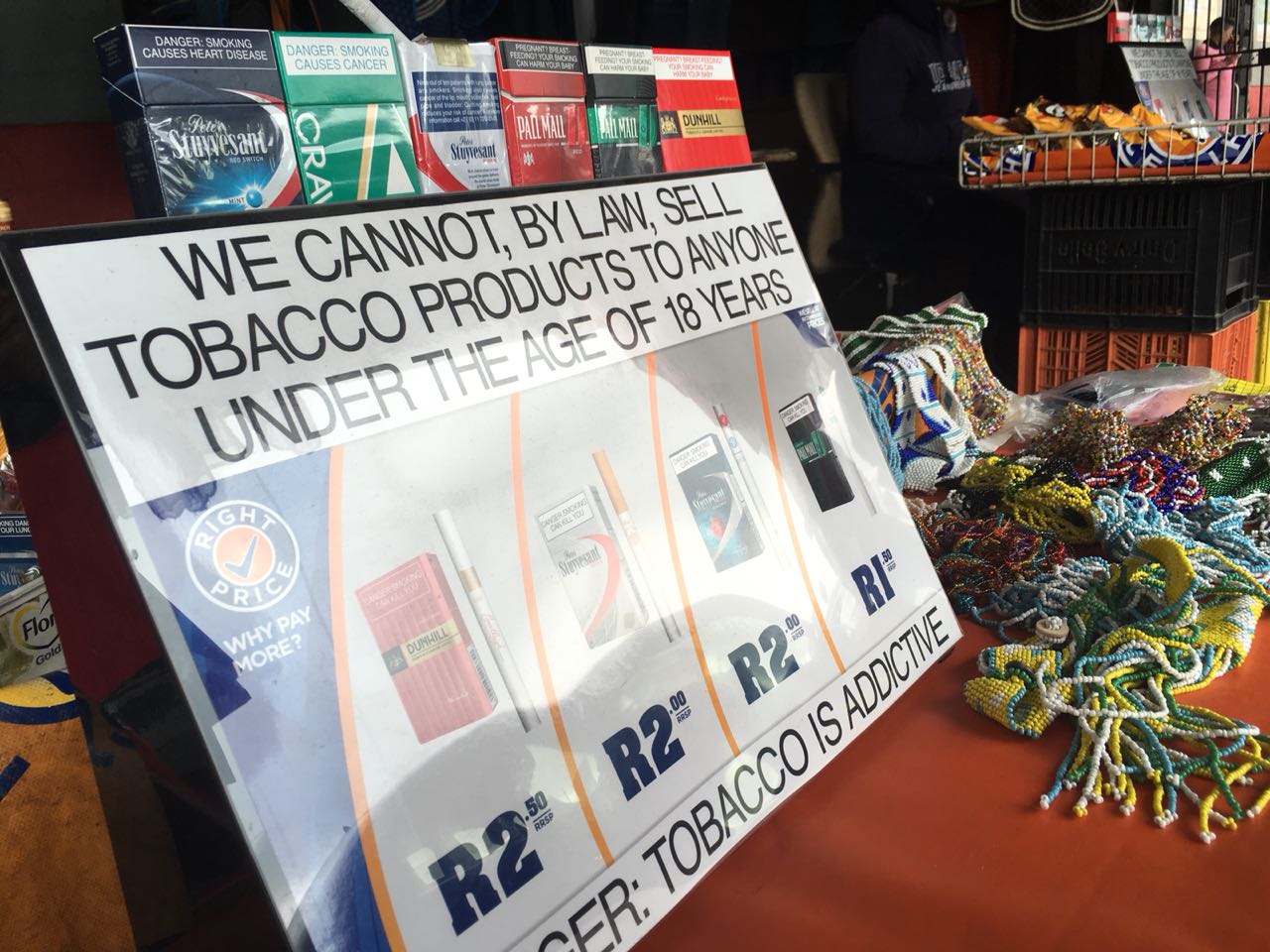The South African Informal Traders Association (SAITA) believes the Government’s proposed ban on the display of cigarettes, as well as a ban on the sale of single cigarettes, will have a massive negative impact on their members ability to trade.
“We are calling on the Minister of Health to exempt informal traders from the provisions in the proposed new Tobacco Bill,” says Rosheda Muller, President of SAITA, during a tour in Khayelitsha to show how these provisions, contained in the Control of Tobacco Products and Electronic Delivery Systems Bill, will effect township-based informal traders.
SAITA represents many thousands of the 2.2 million informal traders, hawkers, spaza shop owners and home-based operators across all 9 provinces in South Africa.
The Bill was published by the Department of Health for public comment on 9 May 2018. The comment period ends on 8 August 2018. SAITA will be making a formal submission to the Department of Health.
“The government knows how important the informal trade is to our economy. We are saying that the impact on the informal trade needs to be considered before the development of any new laws or regulations, and where necessary, exemptions should be granted,” said Muller.
SAITA estimates that about one third of the average informal traders’ income comes from cigarette sales.
“There is a simple solution. Some years ago the Department of Health published regulations banning the display of tobacco products. After representatives of small business and the informal trade raised concerns, an exemption was granted to traders operating in a space less than 15 square metres. The regulations were never adopted, and now we have a draft Bill published without an exemption. What happened in between? The Department needs to explain.”
Thozama Gwente, Western Cape Secretary of SAITA who accompanied Muller on the tour, said she believes the ban on display is totally unworkable in the informal sector.
“The Bill will also introduce plain packaging which means all packs of cigarettes will look exactly the same. For those of our members that can hide their cigarettes, they will be a placed at great personal risk. Every time a customer asks for cigarettes, the trader will need to root around in a hiding place for packs which all look the same. This exposes him or her to being robbed or worse, being attacked. This Bill is making it more dangerous for the people, when it is supposed to be protecting them.”
Muller explained that there are three specific provisions which will have a devastating impact on the 2.2 million informal traders across the country.
On the ban on the display of tobacco products, Muller said this won’t work in the informal trade as they do not have the infrastructure of the formal sector.
“We simply don’t have anywhere to hide the products. The Minister seems to think that by hiding cigarettes away, people will stop smoking. Anyone can tell you that it won’t work. Smokers want a cigarette and so they will go find them. In addition, it is profoundly unrealistic and senseless that traders who do display their legal wares could face a 5-year prison sentence. Government would do well to remember who the real criminals are.”
During the meeting with DPME and the Department of Health, it was confirmed they will be banning the sale of single cigarettes.
“If you look at any taxi rank or township trader, you will see that these are the backbone of the informal trade. Traders feed their families and send their children to school from the sale of these products. Our customers cannot afford full packs and if they can’t buy single cigarettes, they will simply buy illicit instead ”
Commenting on the introduction of plain packaging. Muller said this will drive the illicit trade, increasing accessibility for the youth. Why would anyone pay full price for legal cigarettes when they look the same as illegal cigarettes which are easily available. The Department of Health say that will address illicit by having identifying codes on cigarette packs which will be scanned at point of sale. This provides us with no comfort at all and in any case, the informal trade won’t be able to use scanners as they don’t have the facilities or space for them and many of the traders are roving vendors.”
Asked about the ban on retail incentives, Muller said: “why would the government want to deprive informal traders of an income stream. Manufacturers incentivise us to stock their products and for not stocking illegal tobacco. What is wrong with this? We need this money and the new law proposed just gives it back to the manufacturers”.
Muller said SAITA supports the Minister of Health’s objective which is to stop people from smoking, especially the youth.
“But the solution isn’t to hide the products, the solution is education. Go into the schools and show our kids what smoking does to you.There are alternatives and we will be sharing these as part of our formal submission to the Department of Health.”
SAITA calls on all small and micro businesses to voice their concerns and objections to the Department of Health at lynn.moeng@health.gov.za before 9 August 2018.






 WhatsApp us
WhatsApp us 

